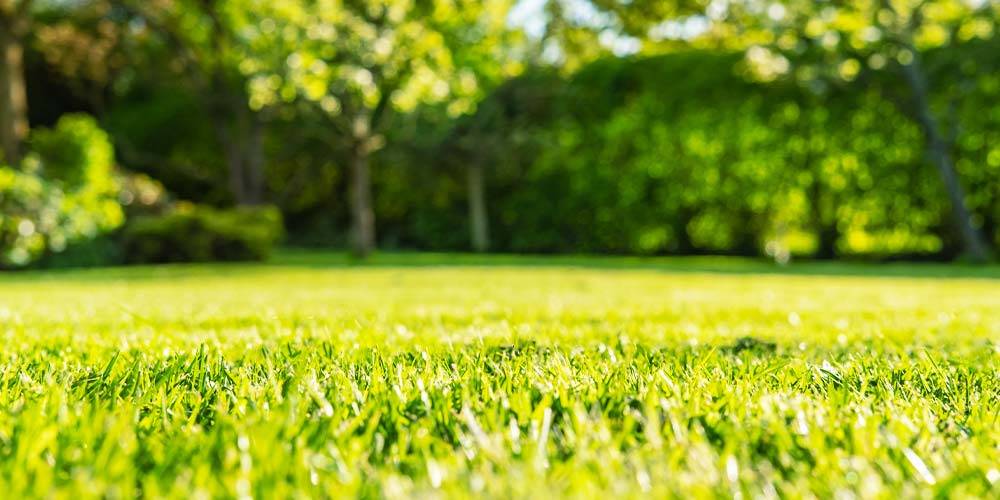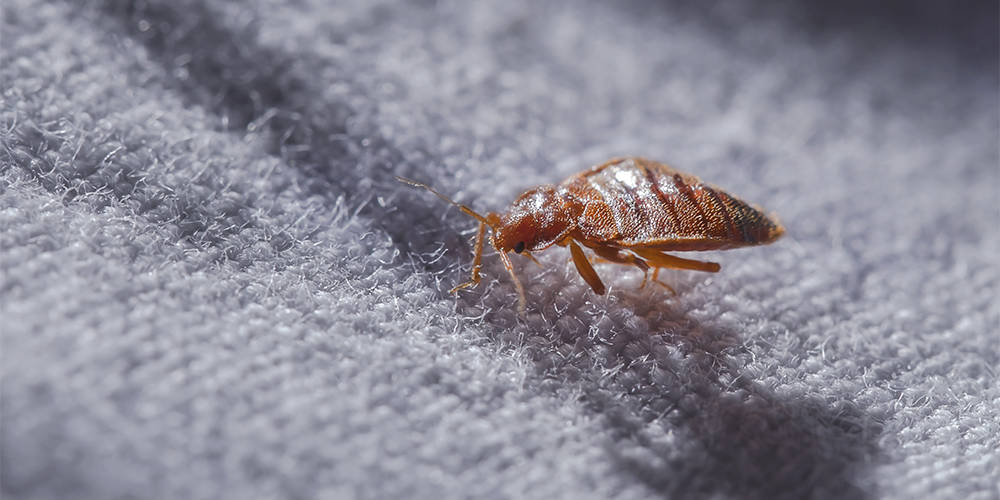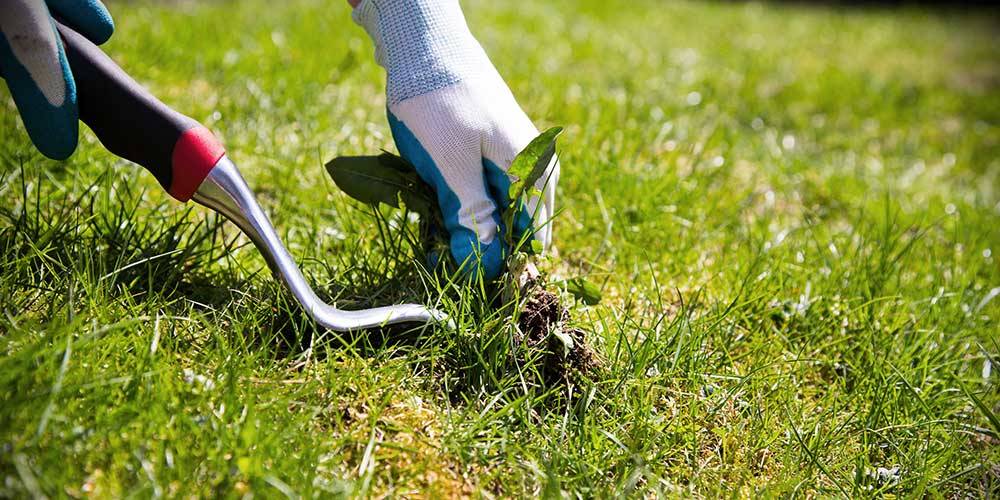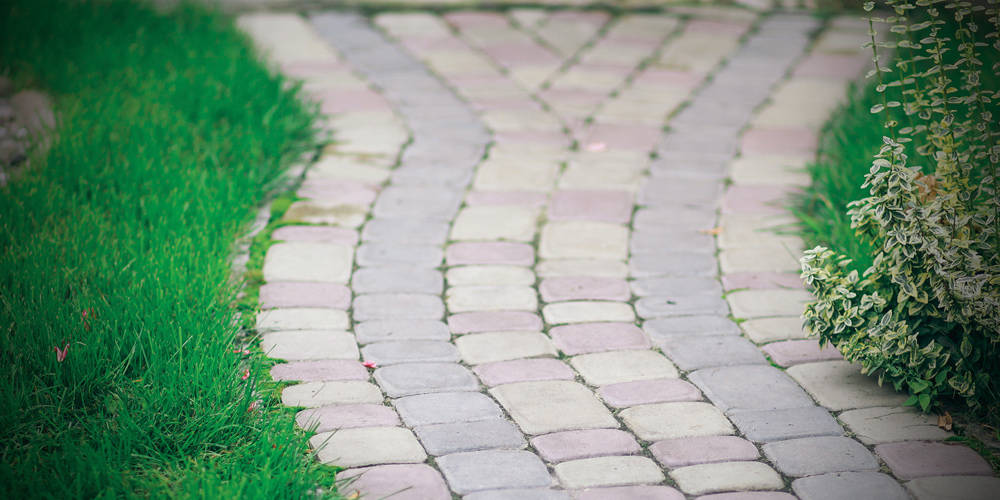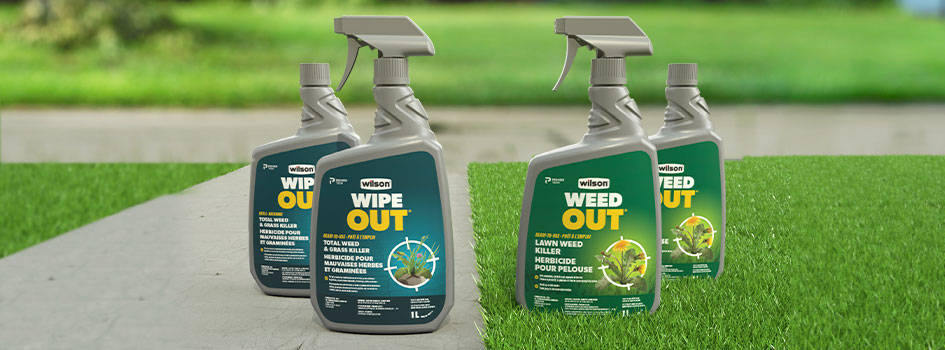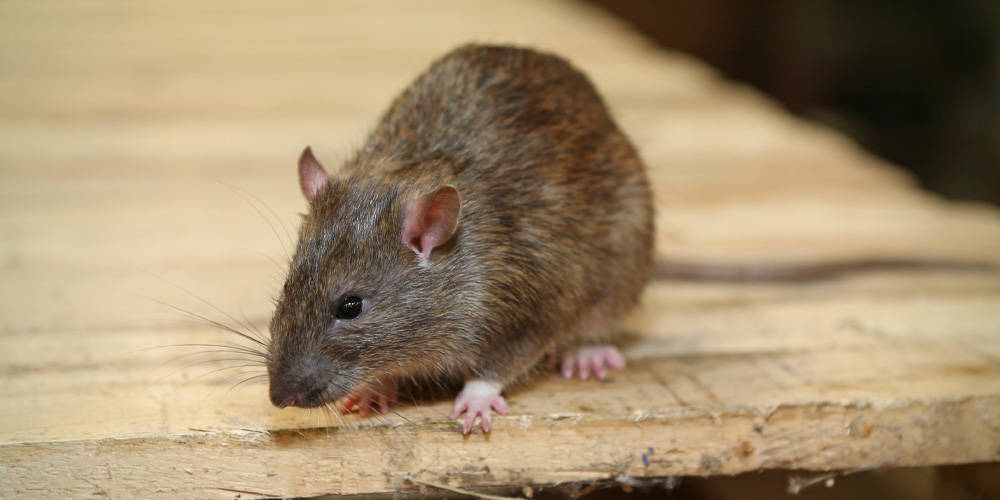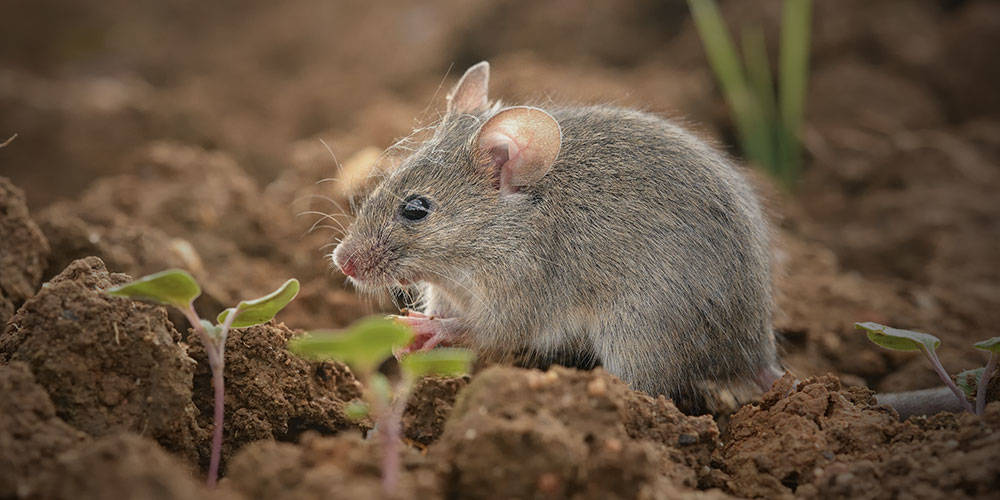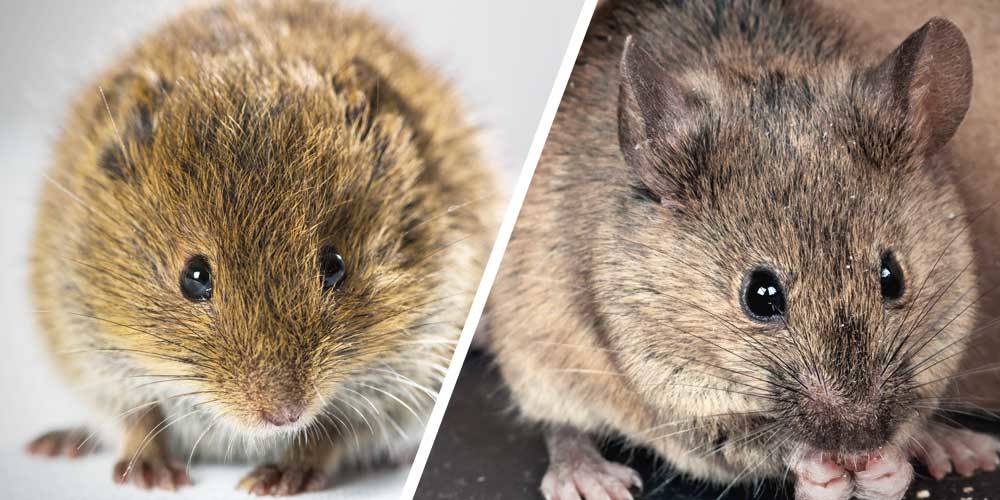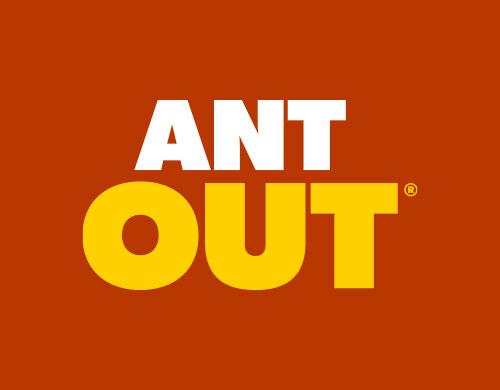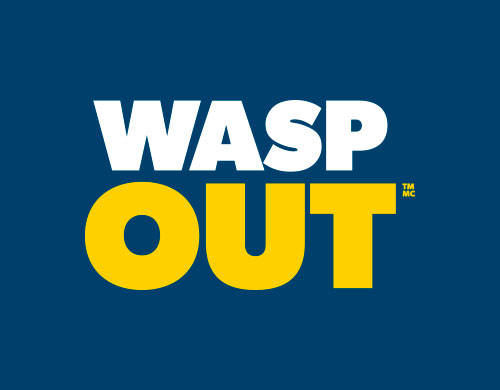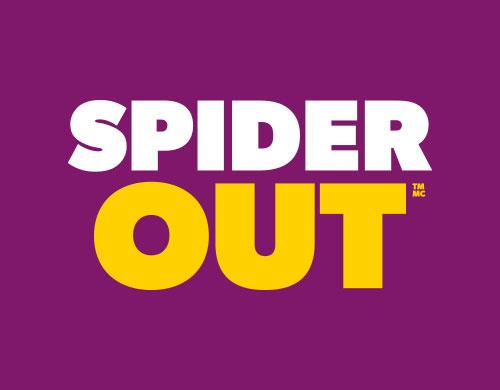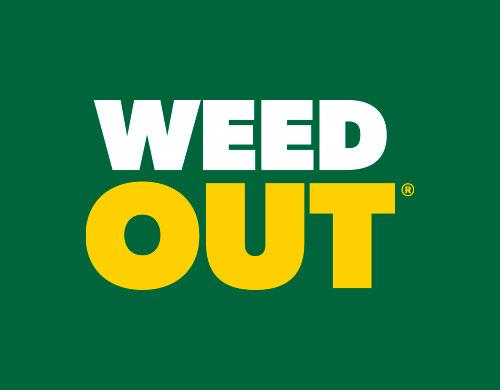Insecticidal soap: the eco-friendly and effective solution to protect your home and garden
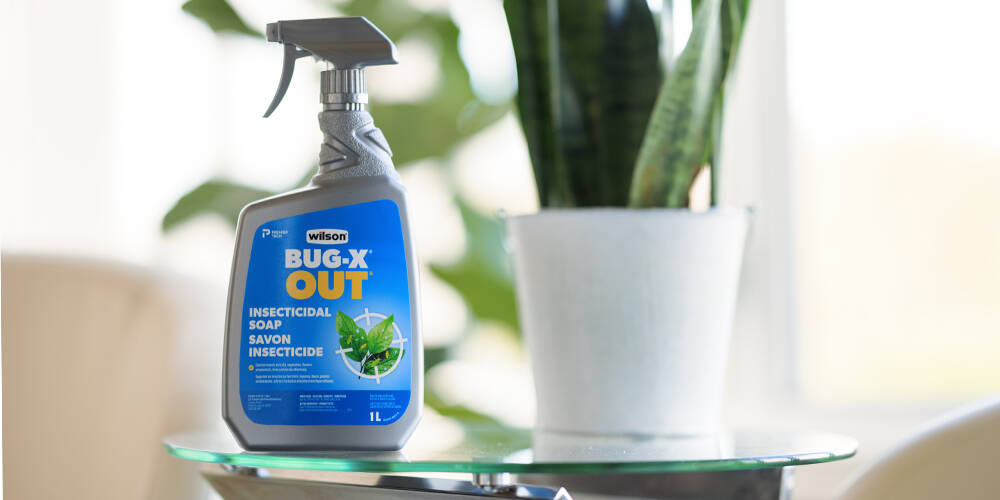
When you bring your plants indoors for the winter, there's a good chance you'll introduce various insects into your home. Some will quickly leave the plant or its pot, leading to a frantic chase throughout the house. This is the case for earwigs, ants, spiders, centipedes, woodlice and various small caterpillars.
Of course, armed with Wilson ANT OUT, CRAWL OUT and SPIDER OUT, or sometimes, even a vacuum, you’ll quickly get rid of these intruders. However, some more discreet creatures will comfortably settle in your plants, multiply, and sometimes... won't show any signs of life until you're dealing with an infestation.
There is a solution that is both preventative and eco-friendly.
What is insecticidal soap?
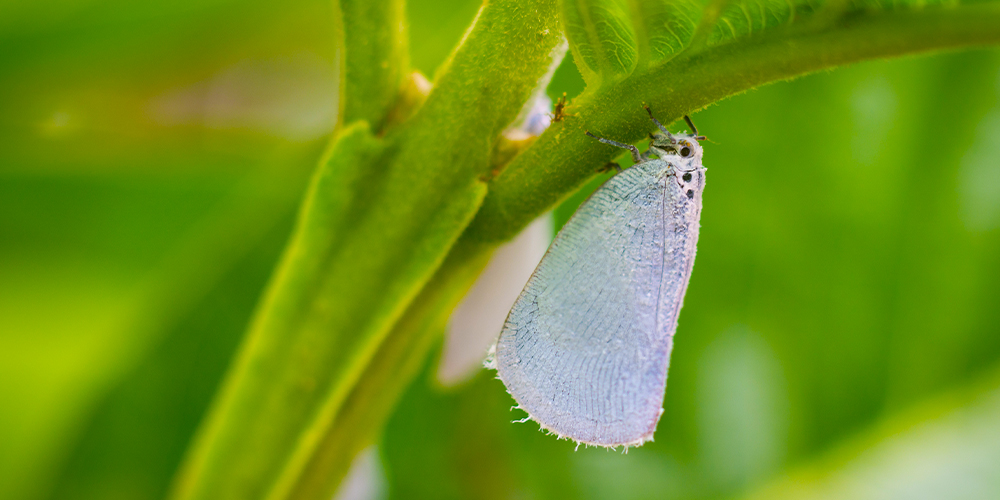
The formulation of insecticidal soap is based on ingredients of natural origin. Safe for most plants, it can be used repeatedly, when necessary, to eliminate many insects from your plants. Because you know that outdoors, some plants are repeatedly attacked, requiring persistent efforts.
Before bringing your plants indoors, inspect them carefully and treat them, whether you see insects or not. No one wants to see tiny flies flitting around their plants during the winter. Not to mention that some inadvertently introduced insects can endanger all your plants.
How does insecticidal soap work?
BUG-X OUT Insecticidal Soap works in two ways: by suffocation and by desiccation. Desiccation is a form of dehydration that involves the removal of water at an extremely advanced stage. In other words, insecticidal soap dehydrates insects by penetrating their cuticles, leading to cell collapse and desiccation. It also works by asphyxiating the insects.
How long is insecticidal soap effective?
The soap is designed to work on contact. Its effect is almost immediate. Application is simple. Spray it on the foliage, especially under the leaves and the stems to eliminate insects within minutes.
Since it's effective in its liquid form, once dry, it no longer eliminates insects. Spray again if you discover other insects on the plant.
What insects does insecticidal soap target in the home?
Here are some of the insects that insecticidal soap fights to prevent infestation in your houseplants. Some pests are devastating, others less so. Some persist on the host plant for a long time, while others move from one plant to another with startling speed.
Aphids: Well-known in the garden, where they often attack the same stem in large numbers, aphids can also be present on houseplants... initially in small numbers.
Mealybugs: These fuzzy insects look like white cotton wool. Mealybugs damage plants by sucking their sap.
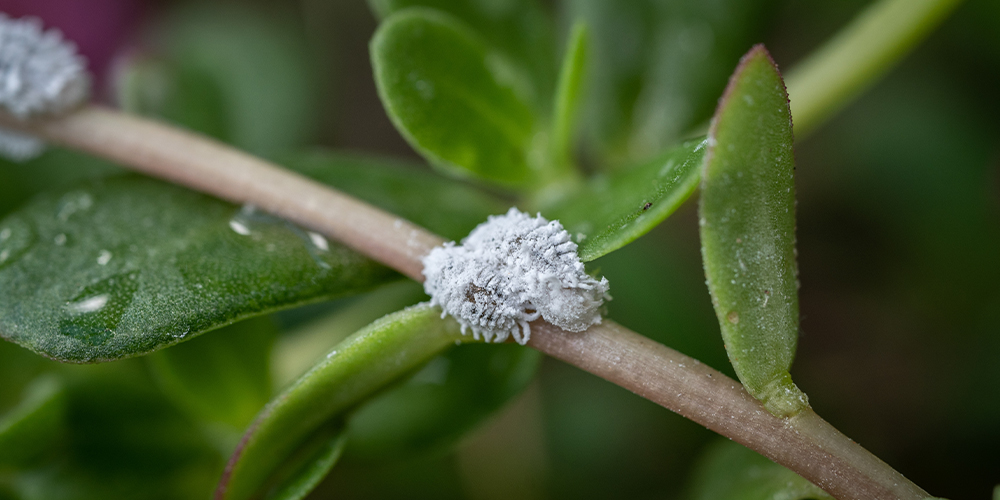
Scale insects: Difficult to spot and dislodge, these scale insects are protected by their outer shell. They are particularly difficult to detect on woody plants, where they can be mistaken for slight swellings.
Whiteflies: They are small white flies that hover around plants when disturbed. They can move from one plant to another!
Thrips: Tiny, with their elongated, narrow bodies, thrips can cause the destruction of your plants.
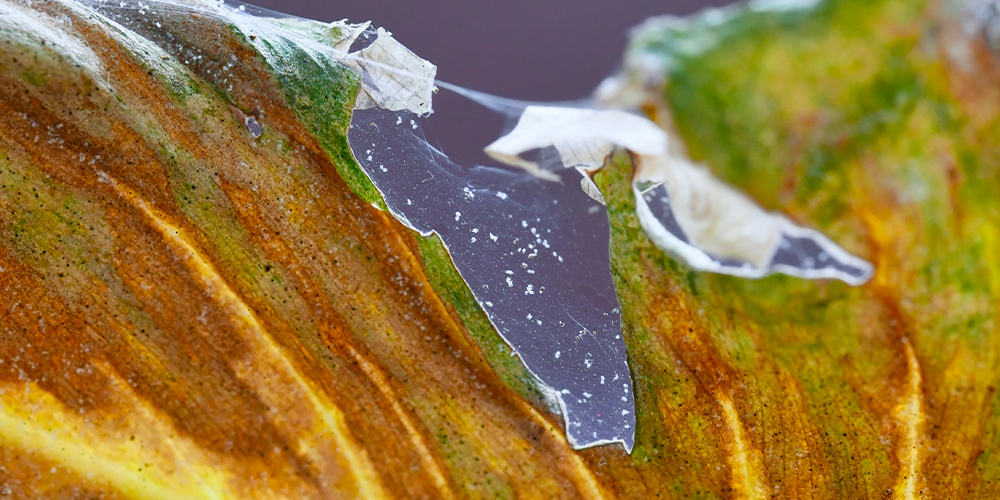
Spider mites (commonly called red spider mites): These tiny mites spin webs on the leaves and feed on plant sap. While their webs eventually become visible, especially at the junction of stems, the presence of spider mites can also be detected by the appearance of discoloured spots on the leaves.
Sciarids: Also known as fungus gnats, they are small black flies that can be seen taking off when a plant is watered or moved. They like to lay their eggs in moist soil, and their larvae damage plants by feeding on their roots. They spread very quickly!
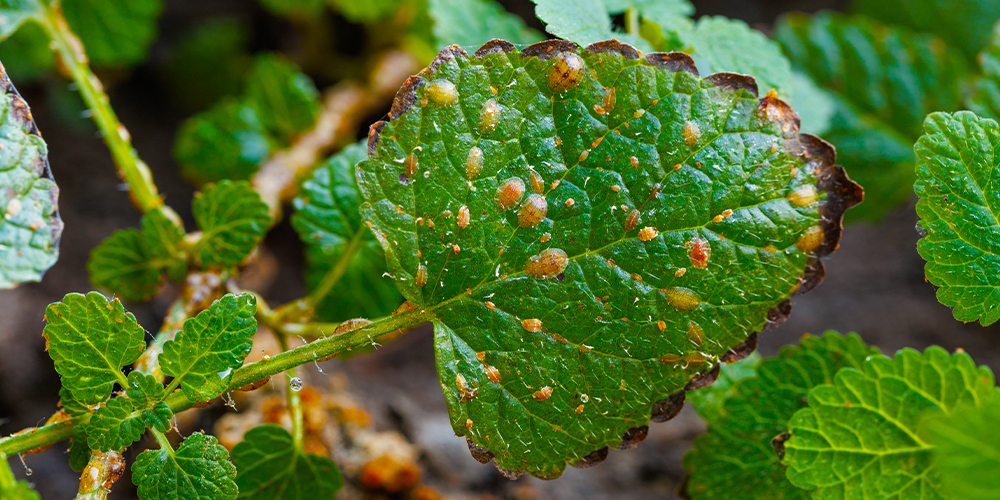
Why are these insects a problem in your home or garden?
Outdoors, the threat of insects is constant. However, pests have access to many plants. Most of the time, the damage they cause is limited to a few leaves or stems and will not necessarily threaten the survival of the attacked plant.
When you notice many insects, you can simply cut off the infested stems and destroy them or use a garden hose to dislodge them. In the event of an infestation, use insecticidal soap to eliminate the pests.
In the home, the situation is different, and it can quickly spiral out of control. Although the limited number of insects present may initially seem to be to your advantage, the situation can quickly escalate.
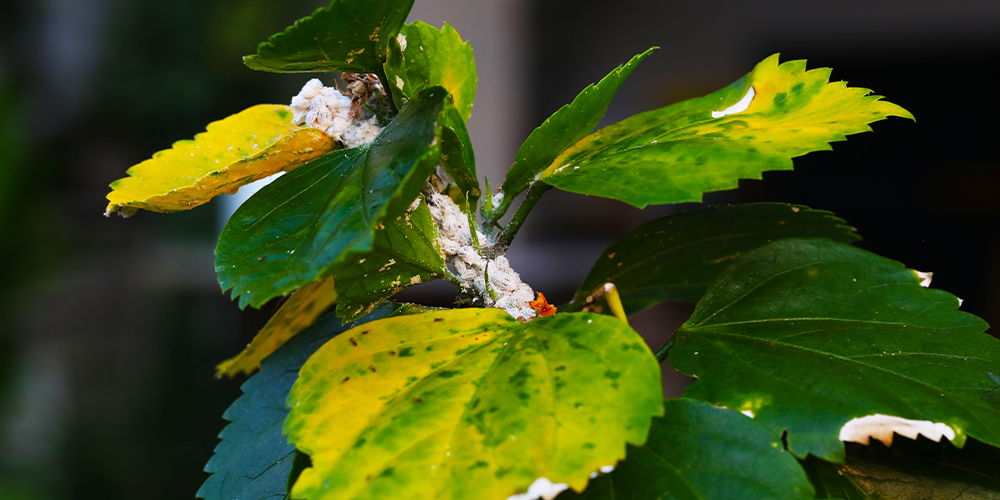
Present in large numbers in the garden, insects make no distinction between an indoor plant and an outdoor plant. It's no wonder we can inadvertently bring them in during the fall. If you're used to seeing them attacking a young rose bush in large numbers, be aware that a stray aphid will be harder to detect.
Houseplants provide an ideal environment for many insects. Humidity is present, it’s warm, air circulation is low, and best of all, they're not threatened by any of their natural predators. All that's missing from this perfect life is an all-you-can-eat buffet... offered in the form of the roots, stems and leaves of your plants.
A small infestation can quickly turn into a veritable massacre.
Why choose insecticidal soap?
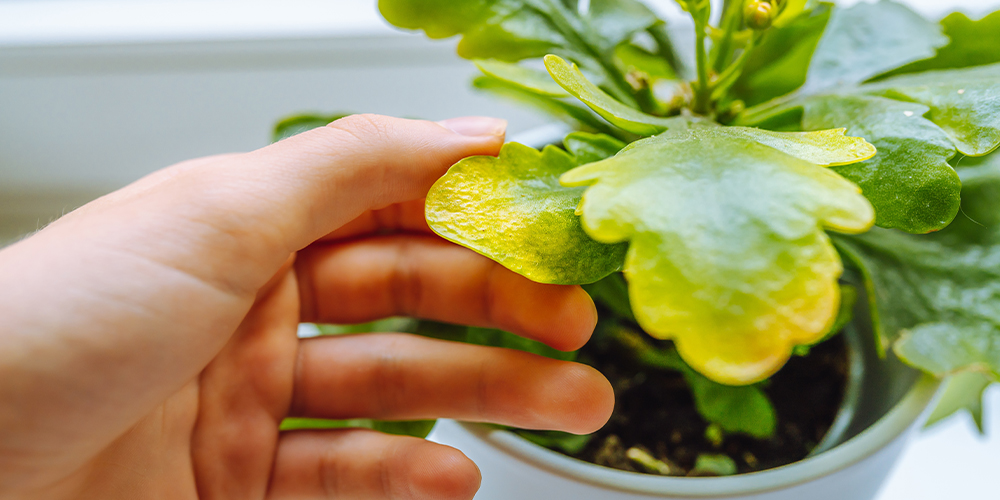
By choosing insecticidal soap instead of a chemical product, you're making an eco-responsible choice. Biodegradable and harmless to ecosystems, it is also safe for most plants when used according to the instructions on the packaging.
Once applied, it is safe for your family and pets (keep the container away from children). It can be applied up until the scheduled harvest from the vegetable garden. Simply wash fruits, vegetables and edible plants thoroughly before eating them.
TIP: Insecticidal soap is not recommended for ferns, sweet peas and nasturtiums. It is also recommended to test before applying it to a fragile plant.
What is the difference between insecticidal soap and chemical pesticides?
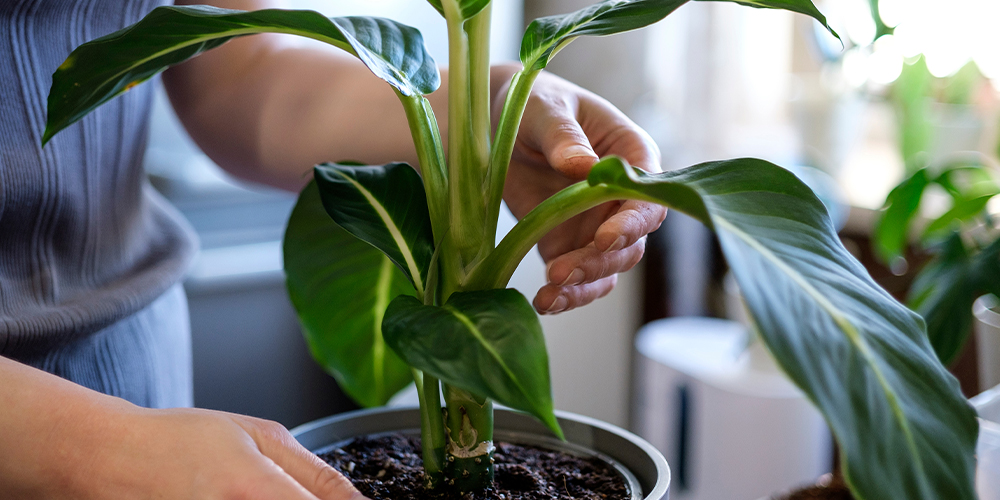
The main difference between insecticidal soap and chemical pesticides lies in their composition and their impact on the environment.
Insecticidal soap is a natural product that works on contact to kill insects by damaging their cuticles or suffocating them. It can be used repeatedly and is safe for most plants and good for the planet.
Chemical pesticides are synthetic substances designed to kill or repel pests. They can work on contact, but also through ingestion or absorption by the plant, which makes them suitable for prevention and also makes their action more long-lasting. Although effective, they can pose a risk to human health, animals and ecosystems.
How to safely use insecticidal soap in the home?
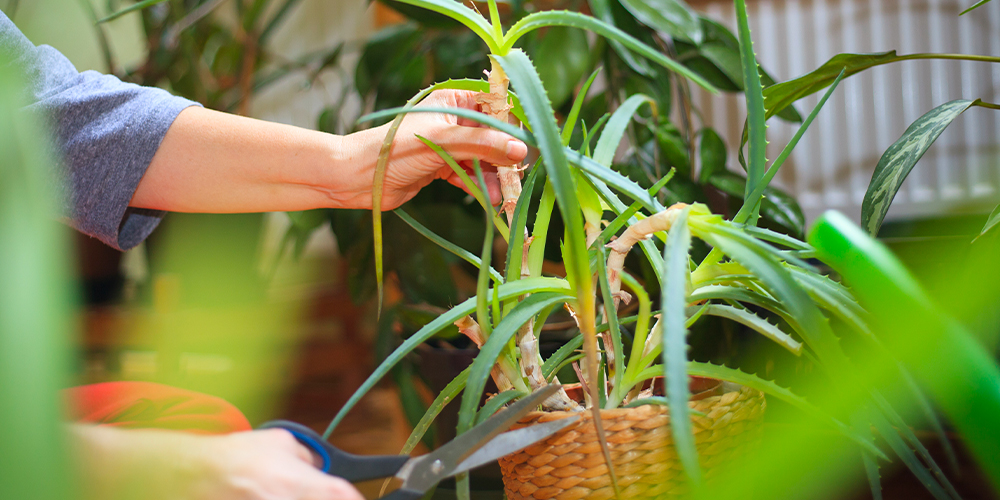
Insecticidal soap can be used indoors and outdoors. It is recommended to follow the manufacturer's instructions.
Our top tips to avoid mistakes when treating your plants
Do not spray on flowers once they have opened.
Do not spray in direct sunlight and avoid treating a plant in very hot weather. Choose a cloudy day and cooler weather or treat early in the morning or early evening (to give the product time to dry).
Before treating a delicate plant, such as roses or young plants (seedlings or transplants), test the insecticidal soap on a few leaves. Wait a few hours before treating the entire plant to see if the product can damage it.
